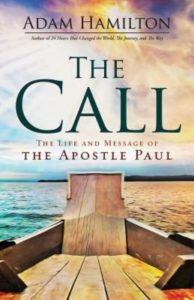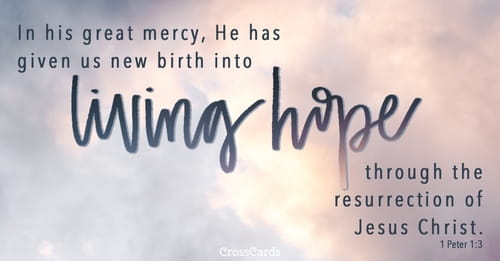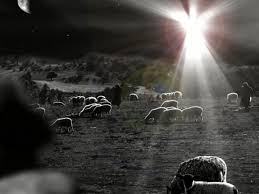Christmas Letter 2019
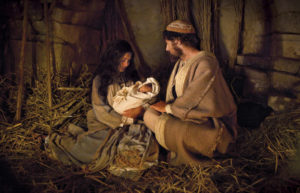
In all of the commotion that happens in the Christmas story, it is easy to miss one of history’s most understated lines, “she gave birth” (Luke 2:7)… We may recall Caesar Augustus’ decree. We might remember how we felt when Joseph and a very pregnant Mary were away by the inn keeper. Undoubtedly, we have yawned with the shepherds “keeping watch over their flocks at night” (2:8). Perhaps, we joined the heavenly hosts singing of the birth of Christ into our world. Maybe like Mary, we too have pondered all of events in the shepherd’s report and “treasured them” in our hearts. Yet, the moment all the earth has been waiting for is merely glossed over in Luke’s telling of that first Christmas.
Hidden within the Christmas story, we are told of Christ’s birth after the fact. Luke writes Mary “gave birth” (2:7). The angel’s announcement to the shepherd’s was in the past tense, “Today in the town of David a Savior has been born to you” (2:11). We are never told how long Mary’s labor took or if Jesus was born breached. Like the moment of the resurrection, Jesus’ birth happened off screen. In fact, that is the scene (probably for good measure) left out of children Christmas pageants. Mary is plump with an oversized pillow under her gown. The scene changes and a thin Mary reappears with Jesus lying in a manger.
In Grasping God’s Word, authors J. Scott Duvall and J. Daniel Hays tell of a Christmas pageant in Dilla, Ethiopia. The church was jammed packed with people, the room was dark as Joseph and Mary wandered in, except the couple “did not travel alone” (138). Atypical to many
Read more...
Easter Letter 2019
On Easter morning, the church proclaims more than an empty tomb. The abandoned tomb points us to the resurrection of Jesus Christ. During the season leading to the celebration of Easter, we have kept near the cross of Jesus. At the foot of the cross, we have heard the blood curdling screams of forsakenness and Jesus whisper his trust in the Lord. The dark of that fateful Friday afternoon gave way to the resurrection’s early light a couple days later.
Describing Easter’s impact on us, Peter writes, “In [God’s] great mercy [God] has given us a new birth into a living hope through the resurrection of Jesus Christ from the dead…” (1 Peter 1:3). This verse is packed with so much nutrition, that I have only quoted in part. However,
Read more...
Christmas 2018 Letter
“Today in the town of David a Savior
has been born to you; he is Christ the Lord.”
(Luke 2:10)
On this holiest of nights two thousand years ago, a small band of shepherds were startled by an angel of the Lord and the announcement that, “Today in the town of David a Savior has been born to you; he is Christ the Lord.” Prior to this moment the birth of God’s Son was merely anticipated; it was oriented toward a future yet unknown. However, there in the outskirts of Bethlehem the angel’s announcement makes an important and unmistakable shift that proclaims that Jesus has been born. The timestamp on the angel’s message reads “today.” In other words, angel emphasized the present as time of fulfillment, now as the time of God’s gracious deliverance.
In The Redemption of Scrooge author Matt Rawle indicates the shift of time that occurs in the Christmas story of Luke 2:1-20. It is a shift that moves us from speaking what happened “In those days” to what to God is doing on “this day.” Our Savior’s birth changes everything:
In those days the palace ruled the world, but on this day the world is being turned upside down. In those days the shepherds were less than unimportant, but on this day, the shepherds received the kingdom of God!
In those days we simply read about a miracle. On this day we expect one.
To me the Christmas story is every bit as pregnant as Mary. Under every detail is a trap door to a deeper meaning. Sometimes I am drawn to the ordinariness of the shepherds, when it dawns upon me that the Messiah came to save common people like us. Other times I identify with the innkeeper and wonder if there is room for the Christ child within. Still other times I wonder if my faith is strong enough to follow Mary’s boy to the cross. This Christmas, I am drawn to the excited and wonder-filled voice of the angel’s first word to the shepherds, “Today”!
I pray that you will find within the Christmas story a detail to ponder. Hopefully a detail that causes the Christmas story to leap off the pages of Luke’s gospel and come alive within. During the next several weeks of December, you are welcome to come and to celebrate the Savior’s birth with your church family. Each service is unique which allows you to blend your insights of the Christmas story with your love for Christ.
Christmas Blessings, Nicholas Perry, Pastor
Thanksgiving 2018

Psalm 116 is an ancient poem sung or recited each year during the celebration of the Jewish Passover. It is located within a larger collection of poems referred to as the “Egyptian Hallel.” The Egyptian Hallel (Psalms 113-118) offers a retelling of Israel’s gospel when they were delivered from the slavery that had bound them in Egypt for hundreds of years.
When I read Psalm 116, familiar voices from Israel’s past can be heard, outlining the drama of Israel’s gospel: verse 3: The snares of death encompassed me; verse 8: For you have delivered my soul from death; verse 17: I will offer to you a thanksgiving sacrifice and call on the name of the LORD. The beauty of poetry is its ability to soar to the heights and plunge to the deepest depths.
Read more...
November 2018
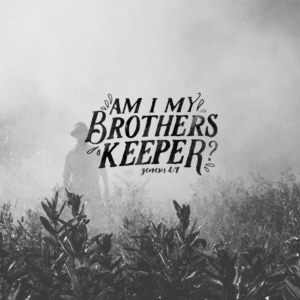
Genesis 4:1-16 contrasts two brothers: Cain and Abel. Clearly, the biblical author wants us to recognize that these two brothers are vastly different from each other. Nonetheless, they are still brothers—a point underscored numerous times (vv.1, 8, 9, 10,11).
|
Name means: “breath, or vapor”
|
Name means: “acquire, or buy” |
|
A keeper of sheep (v.4) |
A tiller of fruit of the ground (v.3) |
|
An offering of firstlings of his flock, their fat portions (v.4) |
An offering of the fruit of the ground (v.3) |
|
The LORD had regard for Abel and his offering (v.4) |
The LORD had no regard for Cain and his offering (v.5) |
|
Abel is killed by his brother (v.8) |
Cain killed his brother (v.8) |
Read more...
Easter Letter 2018
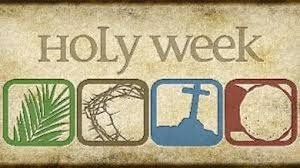
Greetings,
The tomb was empty; the body was gone. In the wonderful book The Undoing of Death author Fleming Rutledge announces, “all four Gospels report this [faith claim.]” There are many discrepancies between the gospels; Luke tells of Jesus’ birth in the small town of Bethlehem, Mark offers no birth narrative. In the gospel of Matthew Jesus helplessly laments on the cross, “My God, My God, why have You forsaken me” (Matthew 27:46) but in the gospel of John Jesus fully in control offers stage directions to his mother and the disciple whom he loved from the cross saying, “Dear woman, here is your son, here is your mother” (John 19:27). Nonetheless, among the beautiful and rich variety contained among the gospel all state emphatically, the tomb was empty; the body was gone.
Read more...
Christmas Letter 2017
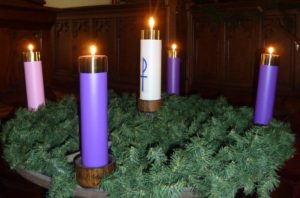
“For nothing will be impossible with God.”
(Luke 1:37)
In his Advent devotional, Why This Jubliee? James Howell remarks, “God comes to people who aren’t seeking God at that moment.” This holds true for Mary living in Nazareth two-thousand years ago. Mary’s story has played in the lives of women and men since the dawn of creation of two people “pledged to be married” (Luke 1:26). So far, there is nothing out of the ordinary. In fact, we have a handful of upcoming weddings already on the church calendar for the coming year.
This marks Howell’s words as notable, “God comes to people who aren’t seeking God at that moment.” As a society we spend little time “seeking God” during the Advent season. Much of our time is trying to find that “holiday spirit” through movies, music, and Christmas parties. Dragging out the years of accumulated decorations we beautify our homes and our church. We do our part of driving around town admiring the Christmas lights, baking and eating sweets, or trying to decide which gift to buy for a difficult relative. The moments pile up like a snow drift; Christmas comes and goes, and the next thing we know we are dragging, as are our neighbors, the tree to the curb.
It is refreshing to know that “God comes to people who aren’t seeking God at the moment.” This is what happens to Mary who is doing the typical things to prepare for a first Century Jewish wedding in Galilee. God comes to Mary through the angel Gabriel, she is “greatly troubled” by the angel’s announcement:
Don’t be afraid, Mary, you have found favor with God. You will be with child and give birth to a son, and you are to give him the name Jesus. He will be great and will be called the Son of the Most High. The Lord God will give him the throne of his father David, and he will reign over the house of Jacob forever; his kingdom will never end (Luke 1:30-33).
Mary questions, “How will this be” (1:34)? After all, she never submitted a multipage resume of her spiritual accomplishments or a curriculum vitae (C.V.). Mary doesn’t exactly apply for the job the angel handed to her. It’s the question that we all must ask. How is it that we bear not just a child but this child? God chooses the unlikely, a virgin to give birth to Jesus. God chooses unlikely people today “who aren’t seeking God at the moment.” The angel answers Mary’s deep question with a profound response,
The Holy Spirit will come upon you, and the power of the Most High will overshadow you. So the holy one to be born will be called the Son of God…For nothing is impossible with God (Luke 1:35;37).
This Advent and Christmas seasons, it is my prayer that you encounter the God who throughout history has made the impossible possible: uttering the world into existence, granting a child to an elderly and barren couple, parting the Red Sea, calming stormy seas, healing the sick, and raising Jesus from the dead nearly two-thousand years ago on that first Easter, to filling the church with the gift of the Holy Spirit. In your disbelief or shock may you respond in obedient faith as Mary who made herself available to the God who makes the impossible possible, “I am the Lord’s servant. May it be to me as you have said” (Luke 1:38).
Blessings,
Nicholas Perry, Pastor
Advent Schedule
December 10 – 2nd Sunday of Advent
7pm – Bible Study
5:30 pm – Evening Family Worship
December 17 – 3rd Sunday of Advent
Children will sing during 10:45 Service
5:30 pm – Evening Family Worship
7pm – Bible Study
December 24 – 4th Sunday of Advent – Cantata
Combined 10 am service (No Sunday School)
December 24 – 7pm Candle light Service
NO – 5:30 pm – Evening Family Worship
Christmas Week
Office closed December 25
Open 9 -3 on Dec 26
Open 9 – noon on December 27, 28, 29
December 31 – combined 10 am Fireside Service (No Sunday School)
NO – 5:30 pm – Evening Family Worship
Office closed January 1, 2018
Thanksgiving
“Then Jesus asked, ‘Were not ten made clean? But the other nine, where are they?’” (Luke 17:17)
It must be time for Thanksgiving. All indications suggest that it is: shoppers congregate in the supermarket loading up their carts with turkeys, dinner rolls, and vegetables. Both the school and work weeks have been shortened. Most of the leaves have blown off the trees except for a few holdouts. Nevertheless, I can always tell that it is Thanksgiving because the assigned Gospel reading is Luke 17:11-19. It is a simple story about ten lepers healed by Jesus.
The ten lepers played by the rules, “they stood at a distance and called out in a loud voice, ‘Jesus, Master, have pity on us’” (Luke 17:12-13). Jesus commended them to “Go, show yourselves to the priests’” (Luke 17:14,) and obediently they went. The plot thickens when the gospel writer’s states:
One of them, when he saw he was healed, came back, praising God in a loud voice. He threw himself at Jesus’ feet and thanked him— and he was a Samaritan.
Jesus asked, “Were not all ten cleansed? Where are the other Nine? Was no one found to return and give praise to God expect this foreigner?” Then he said to him, “Rise and go; your faith has made you well” (Luke 17:15-19).
Typically, I assume that only one of the lepers was thankful for the healing Jesus had given. The flipside is that I usually condemn the other nine labeling them “ungrateful” for the healing that came from Jesus. However, this year I am rethinking my traditional approach to this familiar story.
In his book, They Way of the Wolf Martin Bell imaginatively and beautifully wonders “What about the others?” The Scripture its self is silent, however Bell provides nine plausible reasons for the no-show of the nine lepers:
- One of them was frightened—that’s all. He didn’t understand what had happened, and it frightened him. So he looked for some place to hide. Jesus scared him.
- A second was offended because he had not been required to do something difficult before he could be healed. It was too easy…And so Jesus offended him.
- The third had realized too late that he had not really wanted to be cleansed. That he did not know what to do or how to live or even who he was without his leprosy…Jesus had taken away his identity.
- The fourth leper did not return because in his delirium of joy, he forgot. That’s all. He was so happy that he forgot.
- The fifth leper was unable to say thank you to anymore to anybody. There is something that happens to a man who must beg and who is shunned by his fellows…He just doesn’t say thank you anymore to anybody—not even to Jesus.
- The sixth leper was a woman—a mother who had been separated from her family for eleven years because of her leprosy. She did not return to give thanks because she was hurrying home…She had been freed by Jesus.
- The seventh just didn’t believe that Jesus had anything to do with the cleansing. He knew that healing had taken place, but why and how were the questions… He didn’t return to give thanks because Jesus had had nothing to do with the healing event.
- The eight leper did not return precisely because he did believe that Jesus had healed him—that the Kingdom of God was here and the Messiah had arrived… And so he ran to publish the news.
- The ninth leper why didn’t he return? I don’t know the answer… All I know is that he showed himself to the priest and immediately was cleansed. He then stood still for a moment and smiled. It is impossible to say precisely why he did not return to give thanks.
As, I pondered each of these possible responses of the nine lepers, I found myself slipping in and out of each of the characters thinking, “That sounds like something I think or do.” All of these years, I have been impressed by and admired the one leper who returned to thank Jesus; failing to see that in reality I’m more aligned with the nine who didn’t return. In Jesus’s question to the returnee he asked, “Were not all ten cleansed? Where are the other nine” (Luke 17:17)? Now, I am able to say with a grateful heart, “Lord, I’m over here!”
This Thanksgiving, whether you have fallen at Jesus’ feet in praise and wonderment or express your gratefulness to Jesus’ gift of life and healing in ways that might at first glance seem less obvious; know that the Jesus who asks, “Where are the other nine” (Luke 17:17) does in fact know where were they are. In fact, Bell says, “He knew all along.” My prayer is this Thanksgiving your life will be touched by the grace of Christ and your heart full of gratitude.
Blessings,
Pastor Nick
Heritage Sunday – November 5
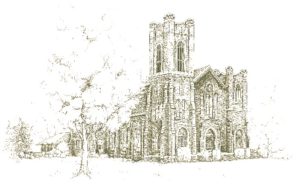
Greetings,
Last year, I had the distinct blessing of participating in this congregation’s tradition of Heritage Sunday. It was a moving and meaningful service. I can still remember walking into our beautiful sanctuary last November seeing the names and the photographs of those whose memory we hold near to our hearts.
Charles Wesley once wrote, “Glory to God, and praise and love be ever, ever given, by saints below and saints above, the church in earth and heaven.” M
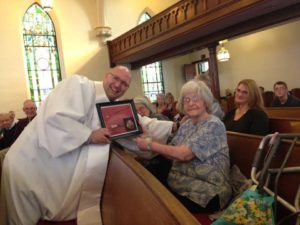
y sermon on Heritage Sunday will be focusing on John’s vision in Revelation 7:9-17. This beautiful and meaningful service will conclude with the sacrament of Holy Communion. Immediately following the 10am service will be a covered dish lunch (desserts & beverages provided) in the Fellowship Hall. I would love your presence. In the meantime, as always the First United Methodist Church will continue to life you in our thoughts and prayers.
Blessings,
Pastor
Getting ready for Fall – All about Paul
“Study it, study it—for everything is in it! Examine it diligently until you are worn out with old age by it, and do not be distracted from it; you could have no better measure than it.”
William P. Brown observes that the verb translated as “study” literally means “turn,” as if to say that the Bible is a finely crafted jewel that, when carefully turned, sparkles with the light of incomparable wisdom. Brown suggests that in the practice of Bible study, “turning” not only involves a Bible passage; it also involves the interpreter. Whenever we are trying to make sense of the Bible we are also “turning things over in our minds,” from assumptions to new perspectives, from fresh questions to surprising conclusions.
Adult Sunday class beginning on September 10th @ 9:30am in Gibbs Parlor. I am suspecting that as we examine a small portion of one of Paul’s letters each week with the Holy Spirit’s guidance we will be rotating and “turning” into deeper and more committed disciples of Jesus Christ.
Called to Follow Christ- Paul’s Background, Conversion, and Early Ministry
Called to Go- Paul’s First Missionary Journey
Called to Suffer- Paul’s Second Missionary Journey (1)
Called to Love- Paul’s Second Missionary Journey (2)
Called to Give–Paul’s Third Missionary Journey
Called to be Faithful– Paul’s Death and Legacy
Everyone is welcome to Sunday school and/or Bible Study. Prayerfully consider joining others and me as we embark together on this journey with the Apostle Paul. We have secured a handful of Hamilton’s book in the church office that you may borrow for the duration of the study or you may purchase the book on your own. I hope to see you soon turning and being turned by the Word of God.
In Christ,
